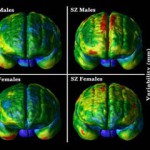
I feel unusually close to The Snake Pit, personally, if not intimately and daily, working with one of the writers, Millen Brand, during my early days in book publishing. This, the tenth film out of twenty-one in the AMHF series, required significant research from the filmmakers in adapting an autobiographical novel by Jane Ward. The […]
By:
Evander Lomke
It seems we are reminded every day about posttraumatic stress disorder (PTSD). It reveals itself in soldier suicides, which are occurring in a way that is more than we can bear. Shootings continue. In one city (Chicago), one mother has been so badly traumatized: She has lost four children over the years to street violence. […]
By:
William Van Ornum, Ph.D.
As readers of this blog and followers of the AMHF Web site know, in August 2012 the foundation embarked on a two-year study of at-risk youth, in partnership with Astor Services for Children & Families of Rhinebeck and the Bronx, New York. Herewith a report, from Dr. Suzanne Button of Astor, on hopes for this […]
By:
Evander Lomke

Previously I’ve written about Recovery International, founded by psychiatrist Abraham Low in the 1940s in Chicago, Illinois. Dr. Low initiated a revolutionary brand of treatment that we now call cognitive therapy: by changing one’s thoughts, one could change troublesome feelings and through practice attain better mental health. Dr. Low used the word apprenticeship to denote […]
By:
William Van Ornum, Ph.D.

Two important areas in mental health are prevention and resiliency. Prevention includes all efforts to prevent a person from developing a mental-health problem. One of the most effective prevention programs has been Head Start—from the 1960s, these centers have been a path for positive adjustment for many young persons of disadvantaged backgrounds. Another prevention program […]
By:
William Van Ornum, Ph.D.
Steven R, Lopez, Concepcion Barrio and colleagues address an important cultural topic in the October 2012 edition of American Psychologist: From Documenting to Eliminating Disparities in Mental Health Care for Latinos. The U.S. Surgeon General’s report from 2012—Mental Health: Culture, Race and Ethnicity—A Supplement to Mental Health: Report of the Surgeon General—documents significant disparities in […]
By:
William Van Ornum, Ph.D.

Paul Gionfriddo, formerly a state legislator in Connecticut, writes about his son, who showed signs of schizophrenia when very young and whose life has been ravaged by the disease. (Article, My Son Is Schizophrenic—the Reforms I Worked for Have Worsened His Life in the October 15, 2012, edition of the
By:
William Van Ornum, Ph.D.

Several days ago, vice president and board member Gene Gollogly celebrated his birthday (October 4). It was a “milestone birthday.” Gene’s work for AMHF occurs largely behind the scenes. The directors are grateful, Gene, for your extensive culture and for your knowledge of the book-publishing and not-for-profit worlds; for your many influential contacts in business, […]
By:
Evander Lomke
American Mental Health Foundation Annual Report November 1, 2011, to October 31, 2012 This is the second Annual Report on The American Mental Health Foundation (AMHF), a research organization founded in 1924, incorporated in New York State December 31, 1954. (Click here for the first annual report, November 2011.) Vision Statement: on the homepage of […]
By:
Evander Lomke
The AMHF grant to Astor Services for Children—to identify and evaluate interventions that help adolescents at risk for suicide and psychosis, and to create scientifically supported guidelines—supports the exact kind of empirical investigation recommended by American Psychological Association President Suzanne Bennett Johnson. In the President’s Column of the July August 2012 APA Monitor (American Psychological […]
By:
William Van Ornum, Ph.D.
AMHF Board Chair Jack Fowler posted the following in National Review Online, The Corner.
By:
William Van Ornum, Ph.D.

Too many times we view medication and psychological therapies as either/or treatments. Many times people will try to avoid any medication for even a severe mental health problem. Their reasons are always worth noting: perhaps there is a realistic fear of side effects, or a desire to work things out in a trusting relationship. Perhaps […]
By:
William Van Ornum, Ph.D.

Faculty of the Harvard Medical School note that Patient Outcomes Research Team (PORT) Treatment Recommendations for Schizophrenia have been updated: “The Schizophrenia Patient Outcomes Research Team (PORT) has issued updated treatment recommendations that not only include detailed advice about medication and psychosocial treatments but also address, for the first time, common problems in this population […]
By:
William Van Ornum, Ph.D.

The Individuals with Disabilities Act (IDEA) lists conditions present in a child that can qualify him or her for special services in the educational system in preschool. These are: *Chromosomal Abnormalities (e.g., Down syndrome) *Syndromes (e.g., fetal alcohol syndrome) *Neuromuscular Disorder (e.g., cerebral palsy, spina bifida) *Central nervous system (CNS) abnormality (e.g., caused by bacterial/viral […]
By:
William Van Ornum, Ph.D.
The American Psychological Association has announced, in the January 2012 issue of American Psychologist, “Guidelines for Assessment of and Intervention With Persons of Disabilities.” This document lists twenty-two practice-guidelines for psychologists who work with persons displaying disabilities of various kinds. The task force for this report was chaired by Kurt F. Geisinger of the University […]
By:
William Van Ornum, Ph.D.

In the recent yearly “Reports of the Association” issue of the American Psychologist (December 2011), the American Psychological Association announced “Practice Guidelines Regarding Psychologists’ Involvement in Pharmacological Issues.” This report notes several factors that will make psychologists more involved in medication-management issues. One survey noted that the number of Americans using antidepressants increased from 6.7 […]
By:
William Van Ornum, Ph.D.

Ann Carrns, writing in the January 11, 2012, New York Times, notes a new financial tool, one geared for families with individuals who have special needs: “Families with children who have special needs or disabilities face even bigger hurdles than most people when it comes to planning for their financial futures. Merrill Lynch Wealth Management […]
By:
William Van Ornum, Ph.D.
William, Like you I am getting ready to ring in the new year with family and friends. For me that means a night with my heroes: my sister Jessie who lives with Bipolar Disorder and my wonderful nephew Calen who lives with Schizoaffective Disorder. They have become fearless advocates for people living with mental illness, […]
By:
William Van Ornum, Ph.D.

Your hospital beeper summons you to the emergency room to assess the condition of an assaultive patient. Are you safe as you enter the room? In your private practice office, you are assessing a patient with a known history of organic impairment and impulsiveness. Have you thought to ensure your own safety? You are about […]
By:
Dr. Raymond B. Flannery Jr.

Hudson River Psychiatric Center was a massive development built in the 19th century in Poughkeepsie, New York. The solid-brick buildings, many with iron window bars to prevent escapes, formed a city unto itslef, with capacity being over 5,000 patients who required hospitalization from illnesses we now term schizophrenia, bipolar disorder, psychotic depression, late-stage alcohol and […]
By:
William Van Ornum, Ph.D.
For the past several months, the New York Times has been running a series of articles on people who experience severe psychiatric illness; and who, by dint of their own motivation, creativity, and resilience, are able to lead productive lives despite the ongoing burden. On November 27, 2011, the front-cover story features Mr. Milt Greek, […]
By:
William Van Ornum, Ph.D.
« Previous
1
2




















 Host Companion
Host Companion